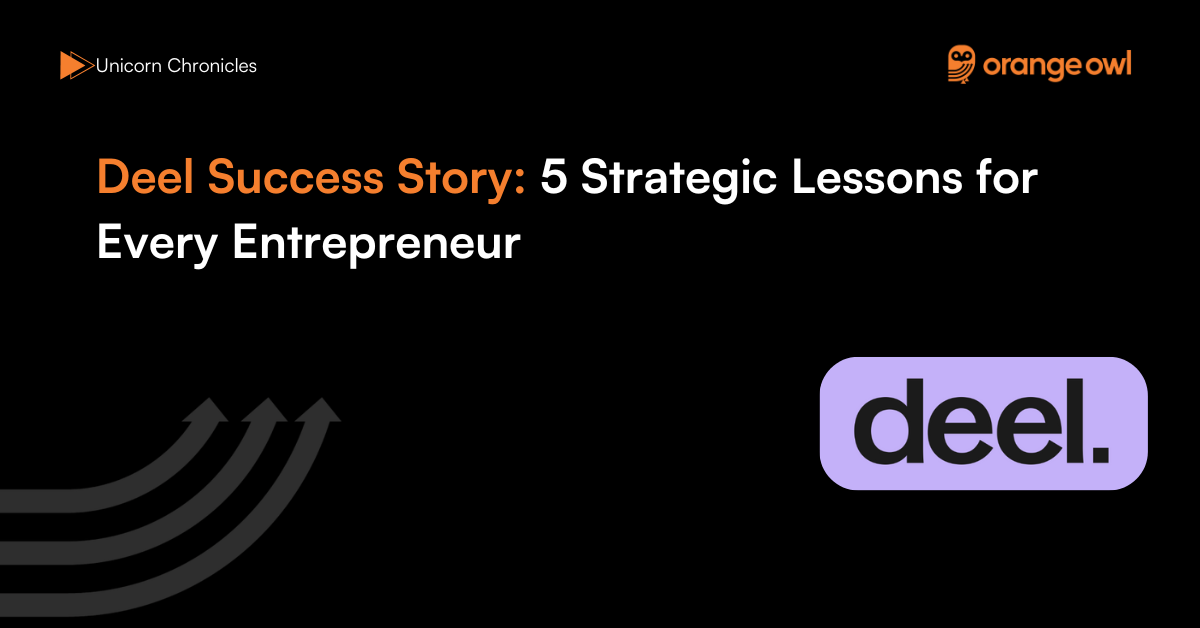9 Indian Marketplace Unicorns and What You Can Learn from Their Success
Vivek Goel
June 2, 2025

Table of Contents
Introduction
India’s marketplace startups are more than just digital storefronts—they’re pivotal engines driving the nation’s economic transformation. As of May 2025, India boasts 119 unicorns, ranking third globally in terms of unicorn count, following the United States and China.
These platforms have disrupted traditional industries, democratized access, and empowered millions of consumers, workers, and small businesses. From reselling used cars and hiring blue-collar talent to on-demand home services and B2B procurement, these unicorns have built scalable, trust-driven ecosystems by solving India-specific problems at massive scale.
In this curated roundup, we explore 9 standout marketplace unicorns—such as Urban Company and Spinny—each transforming a unique vertical with tech-led innovation, seamless experiences, and customer-first thinking.
Whether you’re building a horizontal marketplace or solving a deep niche problem, these companies offer proven blueprints for acquiring users, scaling operations, and staying profitable in a competitive ecosystem.
1. CredAvenue: Powering India’s Credit Infrastructure
CredAvenue, now rebranded as Yubi, is building India’s most robust digital debt infrastructure. In a market traditionally plagued by opacity, inefficiencies, and lengthy offline processes, CredAvenue created a transparent, tech-driven marketplace connecting enterprises with investors and lenders. It has enabled over ₹1 lakh crore in credit transactions and serves more than 3,000 corporates, 750 lenders, and 500 investors. Its focus on solving the debt syndication bottleneck has made it an indispensable part of India’s fintech backbone.
Key Lessons:
- Focus on financial infrastructure, not just fintech.
- Build trust through regulatory-first design.
- Deep domain expertise wins in complex markets.
- B2B marketplaces thrive on transparency.
2. Spinny: Reinventing Used Car Buying
Spinny transformed the traditionally chaotic used car buying process into a smooth, full-stack, customer-first experience. With a focus on 360° inspections, no middlemen, and doorstep delivery, Spinny ensures quality and trust in a segment known for unreliability. As of 2023, Spinny recorded over ₹5,000 crore in annual revenue and expanded across 15+ cities. The startup’s control over the entire value chain—from sourcing and refurbishing to logistics—ensures consistent customer satisfaction and retention.
Key Lessons:
- Full-stack models build consumer trust.
- Owning quality control is a market differentiator.
- Customer experience drives virality.
- Simplification of high-involvement purchases works.
3. CarDekho: Making Car Discovery Digital
CarDekho created a one-stop digital ecosystem for car buyers and sellers in India. Beyond classifieds, it provides financing, insurance, reviews, comparisons, and more—all under one roof. With over 55 million monthly users and operations in Southeast Asia as well, CarDekho has become a dominant force in the auto-tech space. Its blend of content and commerce helps customers make informed decisions, while its wide-ranging services keep users within its ecosystem longer.
Key Lessons:
- Build ecosystems around major life purchases.
- Content + commerce = conversion.
- Monetize via multiple verticals.
- Serve both buyers and sellers equally well.
4. Apna: The LinkedIn for Bharat
Apna became India’s fastest-growing professional network by targeting a vastly underserved segment: blue- and grey-collar workers. It combines job listings, skilling content, and community groups into one mobile-first platform. Apna has facilitated over 30 million interviews and works with giants like Flipkart, Swiggy, and Byju’s. Its use of vernacular languages, voice-based features, and peer communities has created a sticky product tailored to India’s real workforce.
Key Lessons:
- Build for underserved user bases.
- Localization is product strategy.
- Trust via vernacular + voice wins adoption.
- Community-first models scale organically.
5. Zetwerk: B2B Manufacturing on Demand
Zetwerk revolutionized India’s traditional manufacturing sector by building a tech-enabled marketplace that connects large enterprises with pre-vetted, small-to-mid-sized manufacturing suppliers. The platform supports sectors like aerospace, defense, consumer goods, and heavy engineering—where delays and inefficiencies are rampant. By digitizing procurement, standardizing production, and offering real-time tracking, Zetwerk processed over ₹5,000 crore in orders in FY2023 and expanded internationally, underscoring the strength of vertical B2B marketplaces.
Key Lessons:
- Vertical B2B marketplaces are high-moat.
- Digitization unlocks unorganized industries.
- Quality control is the key B2B value.
- Platforms thrive on execution excellence.
6. Droom: Auto Marketplace for a Digital-First India
Droom became a pioneer in auto e-commerce by offering an end-to-end digital platform for buying and selling vehicles. Leveraging AI for vehicle inspections, OBV (Orange Book Value) for pricing transparency, and contactless delivery, Droom catered to digitally-savvy Indian users. As of 2022, the platform listed over 1.1 million vehicles and operated in 1,100+ cities. It proved that vehicle transactions—once offline and trust-deficient—could become seamless with the right tech.
Key Lessons:
- Pricing transparency drives trust.
- AI and automation reduce friction.
- Owning the value chain pays off.
- Digital-first doesn’t mean service-light.
7. Urban Company: On-Demand Services at Scale
Urban Company brought professionalism and consistency to everyday home services. From grooming and cleaning to appliance repair, it created a platform that combines full-stack service delivery, training academies, and customer assurance programs. With over 35,000 trained service partners and operations in international markets, Urban Company demonstrated how to build a tech-driven gig economy with real impact and scalability.
Key Lessons:
- Training and upskilling boost retention.
- Own both demand and supply sides.
- Quality control is the real product.
- Micro-branding professionals drives loyalty.
8. Cars24: Simplifying Car Transactions
Cars24 redefined how Indians sell and buy cars by offering a one-click car sale experience with vehicle pickup, instant quotes, loan financing, and RC transfer services. The company has facilitated over 500,000+ car transactions and expanded into international markets like the UAE. Its end-to-end control and digital-first strategy eliminate the hassles of paperwork, inspections, and dealer negotiations for both buyers and sellers.
Key Lessons:
- Frictionless experiences drive repeat users.
- Focus on seller-side innovation.
- Logistics + paperwork = competitive moat.
- Fintech integrations boost monetization.
9. Quikr: The OG Classifieds Marketplace
Quikr was one of India’s first horizontal marketplaces, digitizing local classifieds across categories like jobs, real estate, household items, electronics, and services. With over 30 million monthly users at its peak, Quikr became a household name. It later pivoted to create vertical-specific marketplaces within its umbrella—like QuikrHomes and QuikrJobs—leveraging its early mover advantage and hyperlocal user base.
Key Lessons:
- Go wide, then go deep in categories.
- First-mover advantage is real.
- Monetize via vertical specialization.
- Hyperlocal still matters in digital India.
Conclusion
These 9 unicorns didn’t just build transactional platforms—they reimagined how India works, buys, sells, and scales in the digital age. From CredAvenue revolutionizing debt infrastructure to Apna empowering India’s workforce, each startup tackled deep-rooted inefficiencies with innovation, technology, and a user-first mindset.
What makes these businesses special is their ability to create organized systems in deeply fragmented industries—be it used cars, home services, B2B manufacturing, or online classifieds. They combined strong execution with customer empathy, localized experiences, and scalable business models.
Whether you’re building a niche B2B marketplace or a consumer-first platform, the lessons here are both tactical and timeless:
- Solve trust deficits before selling a product.
- Simplify complex processes with tech-enabled workflows.
- Own critical touchpoints to ensure quality and consistency.
- Design for Bharat with vernacular, mobile-first, and community-driven strategies.
India’s marketplace unicorns prove that when you build for real-world problems—especially at scale—the market doesn’t just reward you with growth, it positions you as infrastructure for a rising economy.
👉 Want to dive deeper?
Explore all the Unicorn Chronicles here: orangeowl.marketing/unicorn-chronicles


